Strengthening synthetic biology capacity in Africa
Richard Smith-Unna (UCam), Dr Vicky Schneider (Earlham Institute), Dr Jelena Aleksic (TReND), Richard Pilling (Intel), Dr Chinyere Okoro (Sanger Institute), Dr Ibukun Akinrinade (University of Bingham, Nigeria), Dr Vicky Schneider (Earlham Institute)
Two OpenPlant Funds were awarded to support the activities of TReND Africa in developing synthetic biology capacity through their ongoing training activities in Kenya and Nigeria.
One grant supported a bioinformatics training From 30th November to 5th December 2015 for 37 students from nine African countries. The course was held at ICIPE in Nairobi, Kenya and involved six days of theory and practical work, starting from the principles of Unix and programming, through to advanced scientific programming and visualisation. Towards the end of the week students worked on specific analysis methods in various areas of genetics and genomics, with a special focus session on synthetic biology delivered by Richard Smith-Unna. An ongoing student-led study group, coordinated online, will help the students keep the momentum from the course going and the course was also repeated with a new cohort in 2016. The course materials were made freely available online.
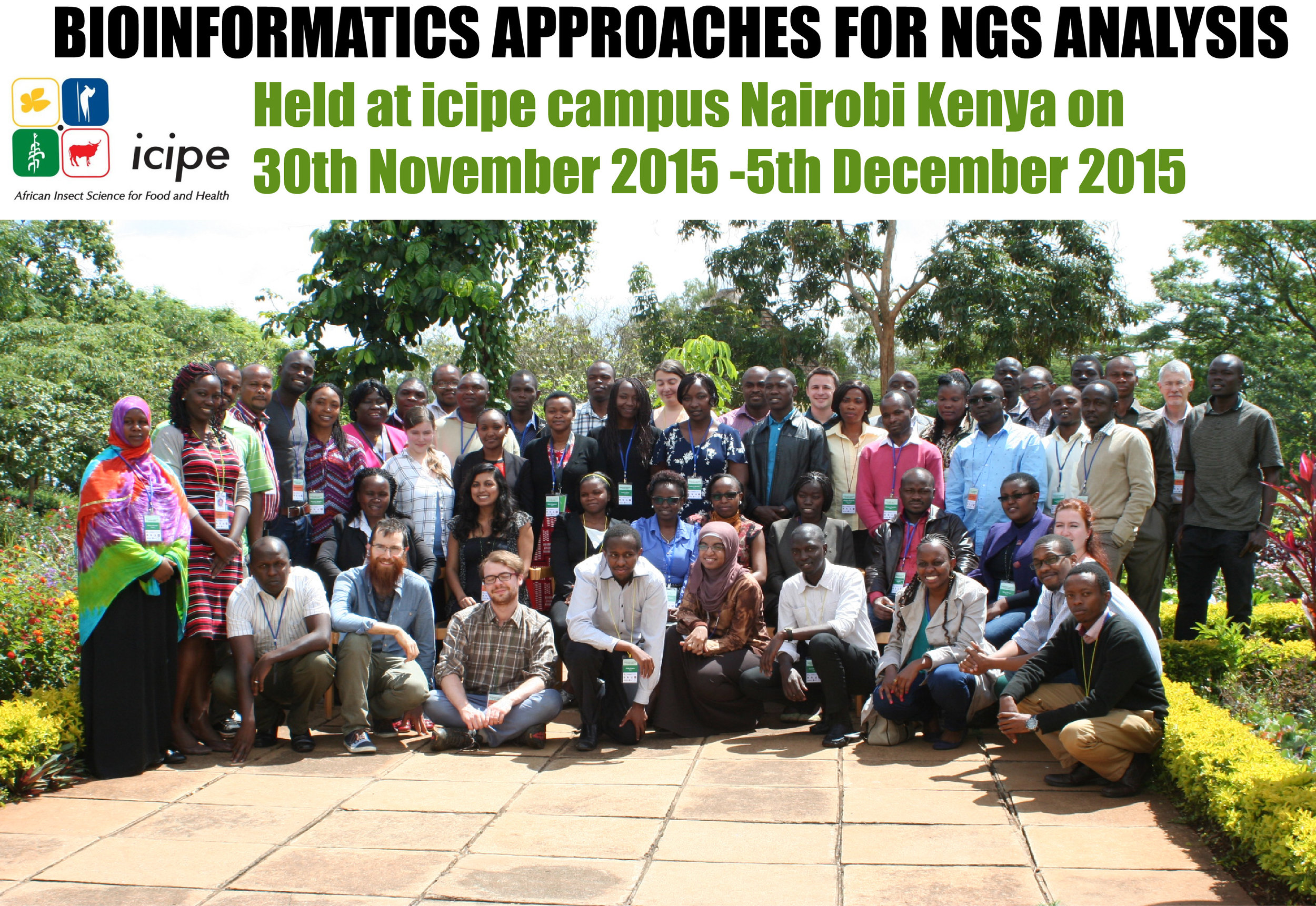
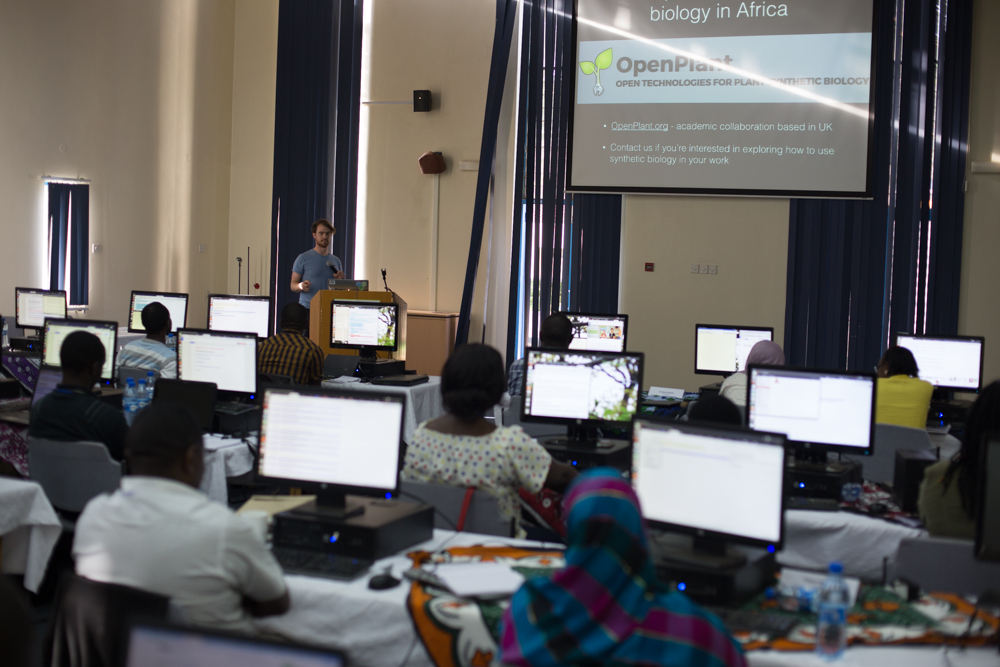
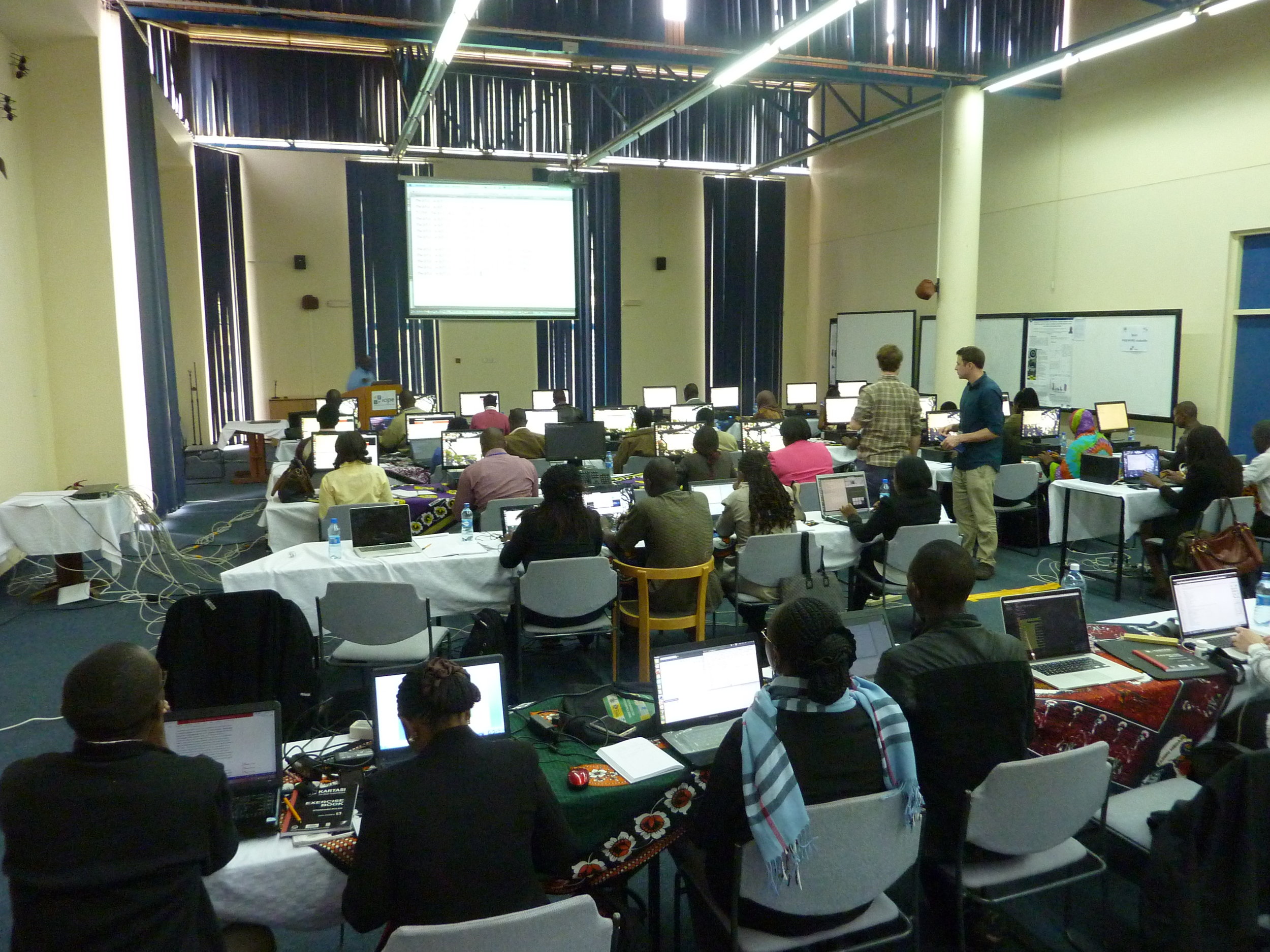
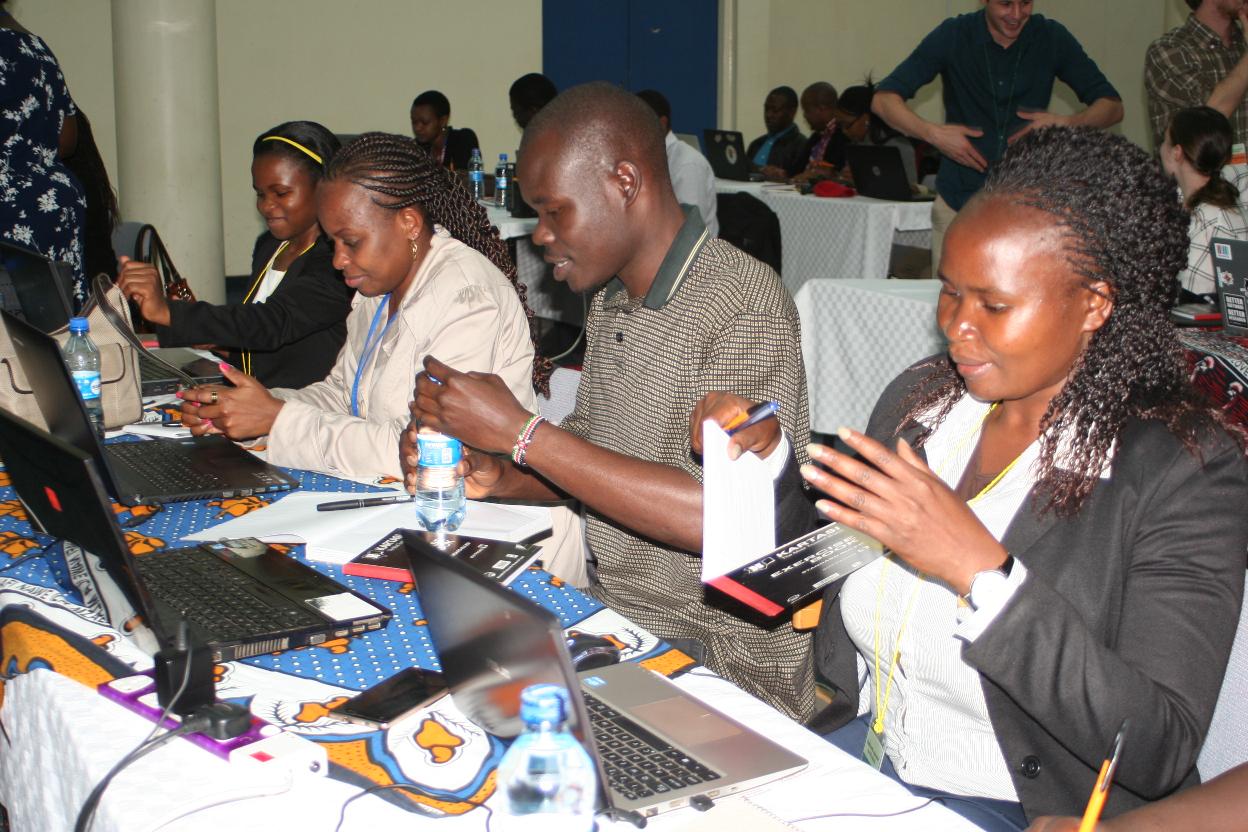
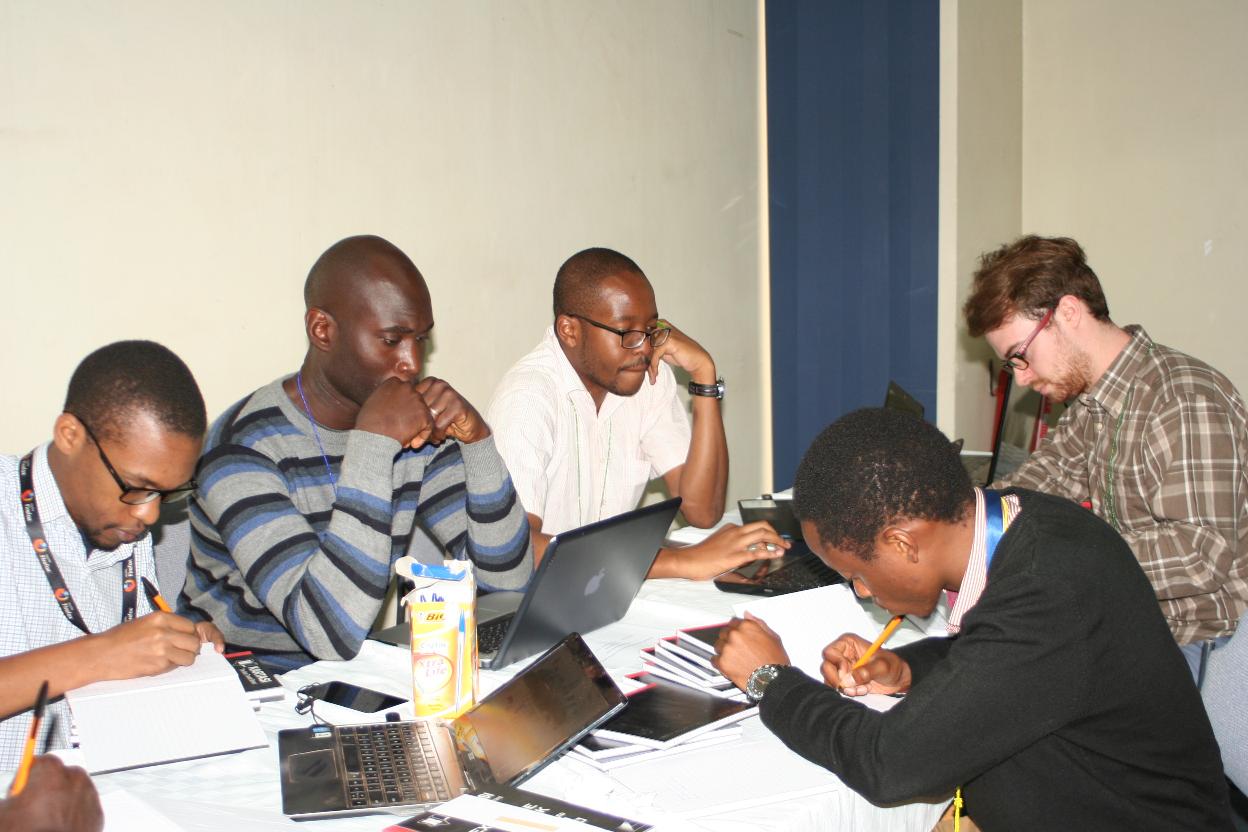
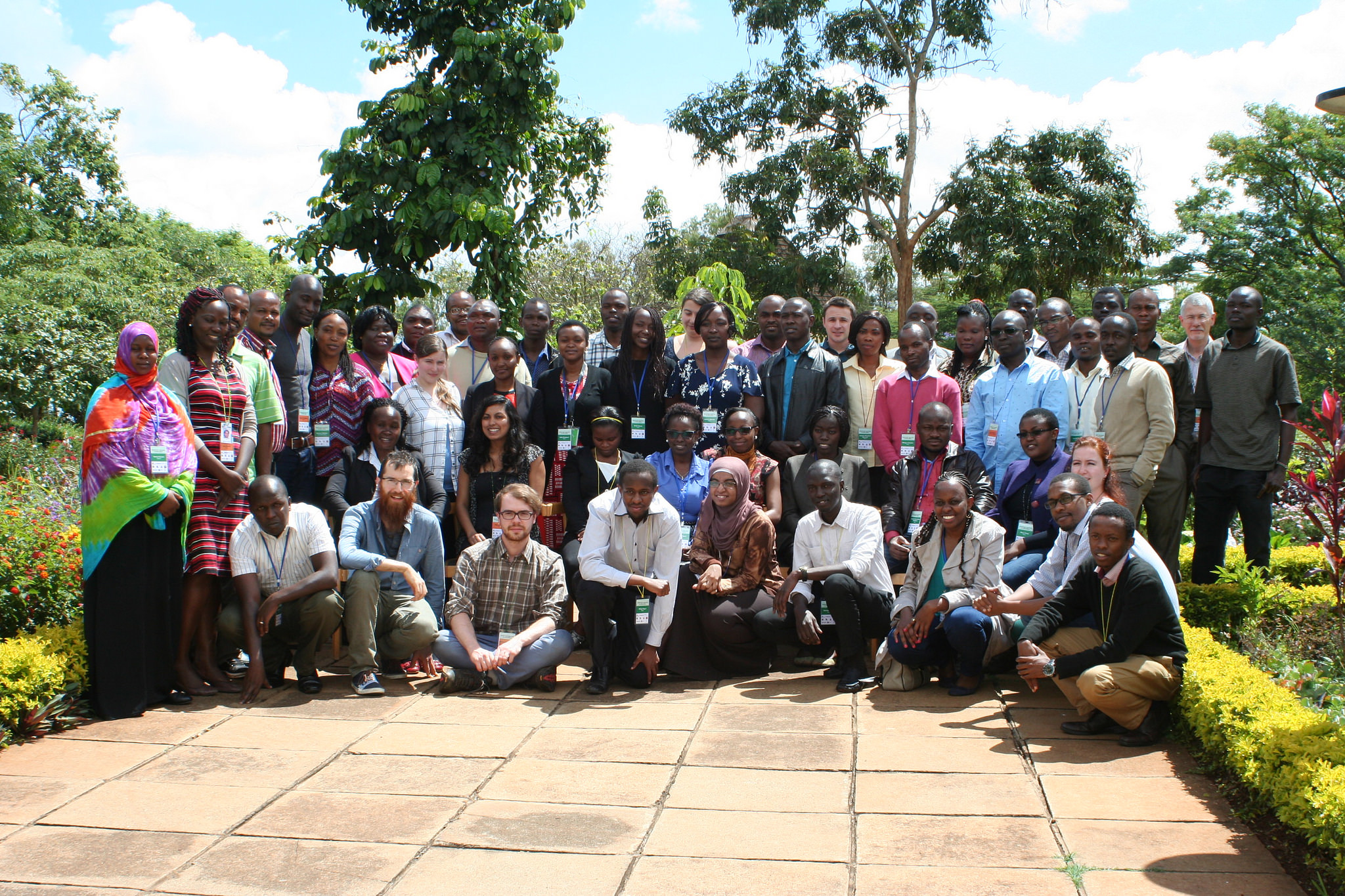
Dr Jelena Aleksic explained why such courses can have such an enormous impact in Africa “In an environment where all scientists above undergraduate level are expected to lecture regularly, the impact of advanced training courses quickly goes beyond the original participants. All our students hold Masters qualifications or above and work at African research institutions. We estimate that each of our course attendees will have the chance to pass on some of those skills to an additional 200 colleagues within the first year alone, and many more on an ongoing basis from there.”
The second grant supported setting up an open synthetic biology lab in Abuja, Nigeria. The team were able to develop a synthetic biology lab in Bingham University, Abuja, Nigeria by collecting over 550 kg of equipment donations from Institutes in Switzerland and the UK and shipping to Nigeria in May 2016. This included molecular biology equipment such as a PCR machine, centrifuges and consumables which enabled a course to be run in January 2017 providing a robust introduction to molecular biology and gene editing techniques including cloning, CRISPR, DNA, RNA and protein methods. The course also included a Science Policy Lecture supported by the European Molecular Biology Organization.











